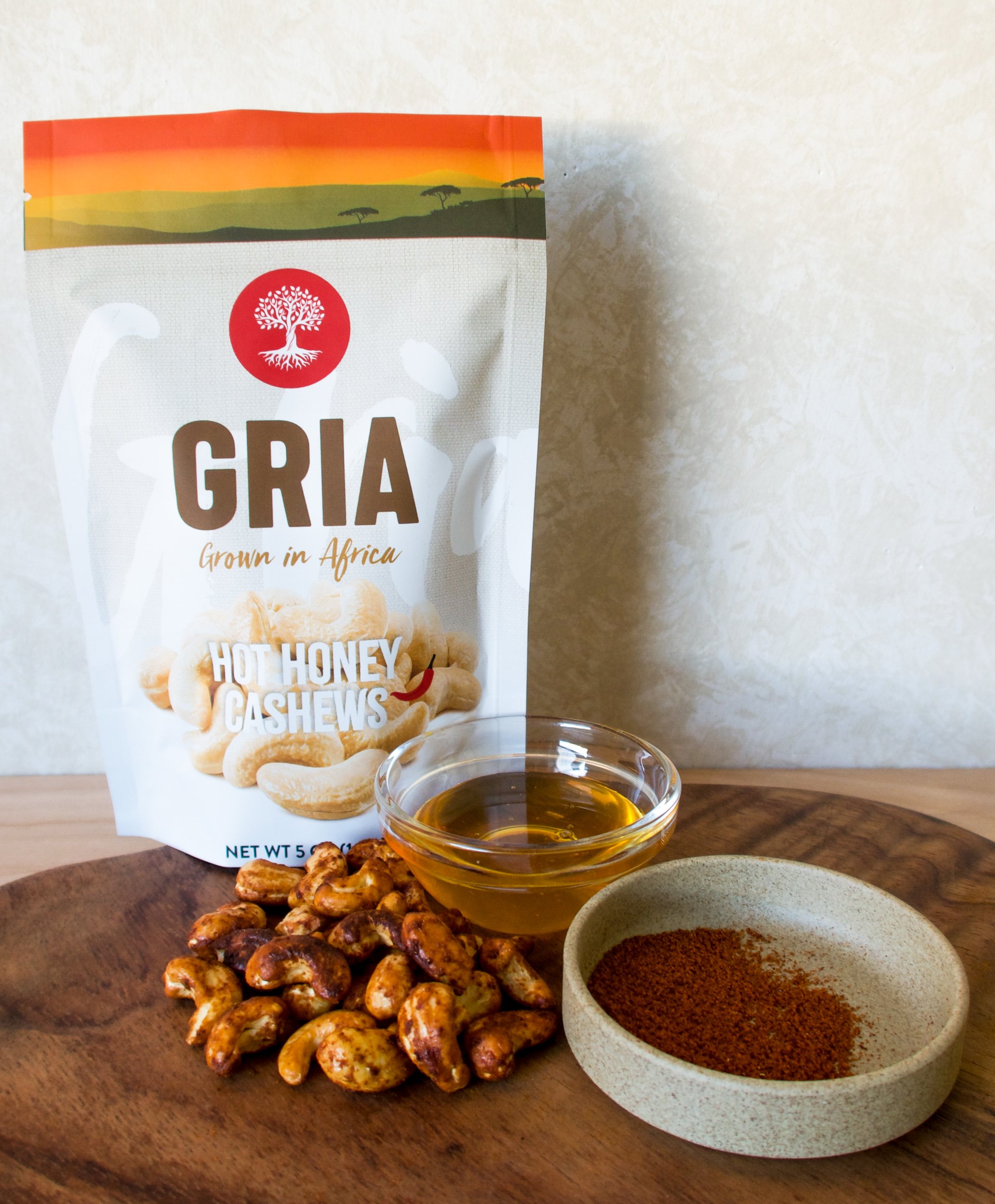Edible Food Find: Gria Food Company
Photos by Xana Turner-Owens
For Josh Reed-Diawuoh, Gria Food Company is a true labor of love. In his first business venture out of graduate school, Gria combines his love of food, well established business savvy and personal ties to West Africa. With family in Ghana, this connection to West Africa is as organic and homegrown as the produce he sources.
Reed-Diawuoh founded Gria Food Company in 2019 to support smallholder farmers and create representation for African foods within the U.S. market. Less than three years later, Gria is thriving as a direct-to-consumer snack brand, featuring six flavors of roasted cashews, with plans to expand into a wider variety of snacks featuring sustainable African crops.
From its produce to its practices, organic is the best word to describe Gria Food Company Traveling to Ghana annually for the past several years, Reed-Diawuoh established a natural relationship with business owners, farmers, friends and family, sparking a desire to create a symbiotic relationship with local farmers. When he returned home he noticed the lack of African food products on the shelves here and was curious how he might change that. He wanted to develop a delicious and snack-worthy product, while also creating sustainable opportunities for African farmers that would ensure maximum profit return to local communities. It was important to find farming operations with fair labor practices, where farmers were getting paid a premium and were able to have autonomy over the distribution of their percentage of profit going back into their farming and operations. With rising support for small businesses, ethical farming and fair trade products, Reed-Diawuoh knew there was a market for the type of brand he envisioned.
Interest in a project like this peaked during his time at MIT Sloan School of Management, culminating in the initial idea for Gria Food Company. Over the next three years, while completing his MBA, Reed-Diawuoh researched sustainably sourced and shelf-stable produce, ethical labor practices, as well as the ins and outs of branding and marketing. Cashews were the clear winner because of their shelf stability, consistent quality and the conditions surrounding their farming. After several rounds testing cashews from different West African suppliers, he decided to partner with farmers in central Benin.
Once he established a supplier, Reed-Diawuoh took his time developing several flavors in his own kitchen (including cinnamon sugar, salted rosemary and spicy garlic), testing for quality and consistency. He enlisted the help of friends and family as he fine-tuned each flavor, perfecting his starting lineup. As the business grew, he began to outgrow his home test kitchen and applied to become a member of CommonWealth Kitchen’s Ready to Launch incubation program in the spring of 2022. There he learned about licensing, permits, marketing and food safety, and was also given access to the test kitchen for production. Having completed the program, he is now a member of the CommonWealth Kitchen community, operating out of their kitchen and benefiting from working alongside a diverse group of fellow business owners and entrepreneurs.
With his combined knowledge from business school and the guidance of CommonWealth Kitchen, Reed-Diawuoh is able to run all elements of the business himself—from recipe testing to development, distribution, branding and sales. He’s looking forward to increasing production and unit sales within the next year but for now he wants to keep the business small, focusing on quality control and selling his product locally, with hopes to expand his catalog to include new flavors, snacks and products.
This story appeared in the Winter 2023 issue.



